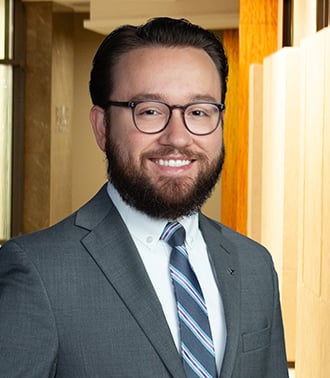When the Whistle Blows Back: FCA Relator Ordered to Pay Defendants’ Attorneys’ Fees
As it turns out, a False Claims Act qui tam relator can’t always have their cake and eat it too.
In a recent order in Omni Healthcare, Inc., et al. v. MD Spine Solutions LLC, et al., Judge Patti B. Saris of the U.S. District Court for the District of Massachusetts granted the defendants’ motion for attorneys’ fees in a rare move that penalized the relator because of their own fraudulent, pre-suit conduct. The court had previously granted summary judgment in favor of the defendants with regard to the relator’s claims related to polymerase chain reaction (PCR) testing for urinary tract infections (UTIs), and defendants moved for attorneys’ fees pursuant to the FCA’s fee-shifting provision, 31 U.S.C. § 3730(d)(4).
Under this provision, prevailing defendants may be awarded their “reasonable attorneys’ fees and expenses” when “the court finds that the claim of the person bringing the action was clearly frivolous, clearly vexatious, or brought primarily for purposes of harassment.” The court noted, however, that an award of fees under this provision is reserved for rare and special circumstances, and a successful defendant must demonstrate that the relator “misused his statutory privilege and distorted the intent of the legislation.” Unfortunately for the relator, the court concluded that their conduct met this standard.
Specifically, the court found that Omni Healthcare, Inc., through its owner Dr. Craig Deligdish, had engaged in “extremely troubling” conduct by knowingly submitting medically unnecessary PCR UTI tests to substantiate its FCA lawsuit against the defendants. Even though Deligdish “believed PCR UTI testing was never medically necessary,” he nevertheless instructed his staff to order the tests from the defendants — thus causing the submission of false claims he knew were not medically necessary, “and thereby violated the FCA himself.” The court further found that Deligdish had “directed the submission of a single urine sample on the same day for PCR-based UTI testing at 10 laboratories even though he did not believe the testing was medically necessary and knew Medicare or the patient’s Medicare Advantage plan would be billed for each test.”
Based on this conduct, the court ruled that the relator’s claims were “clearly vexatious” and brought “primarily for purposes of harassment,” satisfying the conditions under 31 U.S.C. § 3730(d)(4) for fee-shifting. Of note, the court did so even though defendants had reached a $16 million settlement in 2021 under the FCA with respect to different claims (medically unnecessary drug tests).
The court rejected each of relator’s arguments against the award. First, the relator argued that “its own fraudulent conduct did not absolve Defendants of liability under the FCA.” The court found this argument unconvincing, and explained that the “operative question” under section 3730(d)(4) is “whether Relator’s unsuccessful claims were clearly vexatious or brought primarily for purposes of harassment,” and whether the relator’s fraudulent conduct affected the merits of its claims does not affect that determination. Second, the relator argued that the proper vehicle for penalizing it was Section 3730(d)(3), which allows for a reduction of any monetary proceeds from the action, but the court rejected this argument and noted that this section only applies when the suit results in a monetary award or settlement. Finally, the relator argued that awarding attorneys’ fees to the defendants here would “contravene the intent of the FCA’s relator provision.” Specifically, the relator stressed the FCA’s goal of incentivizing relators to expose fraud, but the court cautioned that “the FCA does not prioritize this aim at all costs,” and here the relator did not turn on the defendants as co-participants in a fraud, but instead “committed its own fraudulent conduct specifically for the purpose of bringing an FCA lawsuit.” Thus, the court concluded that it was Deligdish himself who misused the FCA’s statutory privilege and distorted the intent behind the FCA.
For would-be whistleblowers, this case serves as a cautionary tale: the FCA offers powerful incentives to expose fraud — but it does not shield those who manipulate the system for their own personal gain. Relators who cross the line from reporting misconduct to manufacturing it may find themselves liable for the very conduct they claim to oppose.
© Arnold & Porter Kaye Scholer LLP 2025 All Rights Reserved. This Blog post is intended to be a general summary of the law and does not constitute legal advice. You should consult with counsel to determine applicable legal requirements in a specific fact situation.


